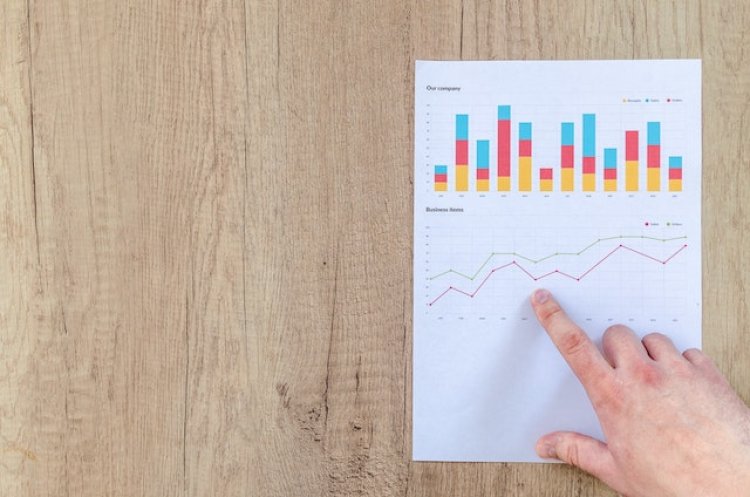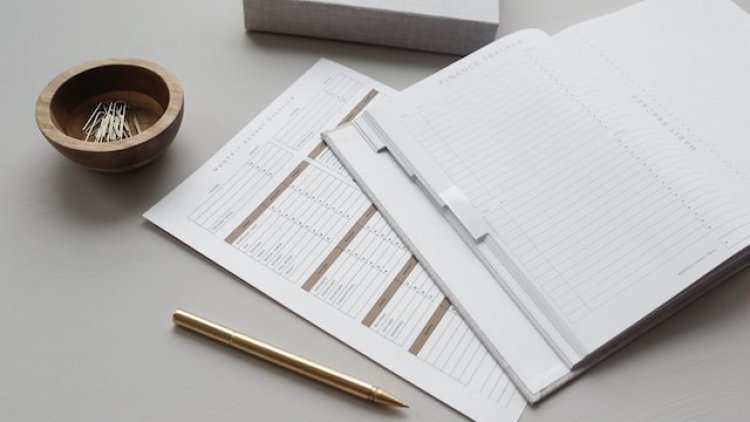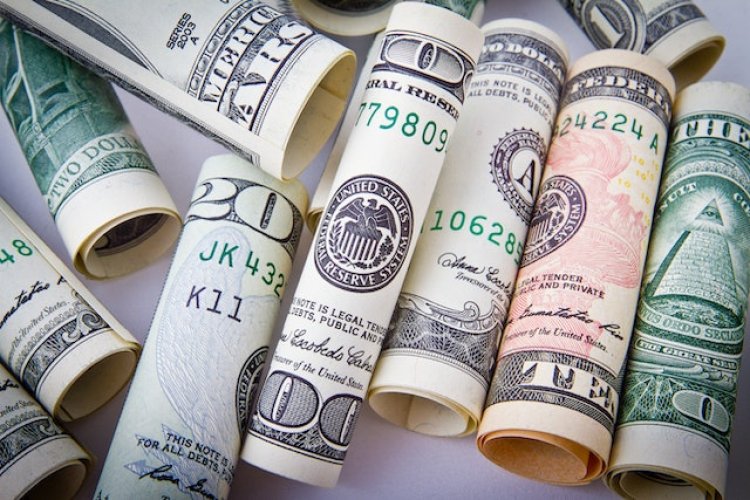Principles of Personal Finance and Budgeting- 2022
How to manage your personal finances and budgeting independently of your specific financial situation should definitely be one of your priorities this year

Principles of Personal Finance and Budgeting
How to manage your personal finances and budgeting independently of your specific financial situation should definitely be one of your priorities this year. I mean it should be one of your priorities your whole life but if you haven't kick-started the process yet this year is as good time as any to get more involved in the world of personal finance there's no way, personal finance is a ridiculously huge world of advice different rules and experiences. I may give you about the subject based on my personal experiences as well as what I know and have read about the subject.

I think that most of all the purpose of this article is to spark your interest and motivate you to research and learn more about this Topic also before you start diving into the world of excel spreadsheets and budgeting plans, there are many different approaches to personal finance. I believe there is no correct approach. it all depends on your personal experience your financial situation your preferences your mindset about money, so on so first and foremost.
I think it's important to take what you hear about personal finance with a grain of salt and secondly studying more about personal finance much like most self-development topics should be done in a very guilt-free environment everyone makes mistakes and may let things slip by if you are in that situation you're not alone and we're all in the learning process together okay so usually. if you're starting out with personal finance, there are three recommended goals you should prioritize building an emergency fund starting budgeting and tracking your expenses and getting rid of debt regarding this last point. let's talking about the emergency fund. A full emergency fund should vary between 3 to 6 months of expenses.

you need your emergency fund because life is unpredictable , there are sometimes incredibly large and unforeseen expenses that may throw you off balance for many specialists on personal finance the emergency fund should be your first goal .if you're started on this path also you should always have your emergency fund fully stocked that means, that if for some reason you need to use your fund all of your saving priorities for other secondary goals should be dropped to restock the emergency fund again. this is a fun part ,I have a lot to say about this budgeting and tracking more than specific goals you need to achieve are habits you should start strengthening and implementing early on if you're feeling a bit lost as to where your money is going i highly suggest you to regularly track your expenses.
This may seem completely useless at first since you're probably just either copying your expenses from your banking extracts or manually filling in, where you spend your pocket money but more than compiling numbers tracking your expenses is like scanning your spending habits.you'll find out how regularly you're spending money and where you're able to cut or not. believe me, most of you will get a heck of a surprise when you start doing this implementing the habit of just tracking your expenses on a simple excel or google spreadsheet .every single day is a good way to make sure you're doing this without the overwhelming task of having to do it in a monthly or weekly basis. because those numbers pile up pretty fast personally.
I track my expenses daily & use google spreadsheets simply, because I can access it anywhere without worrying about the integrity of the file regarding expense tracking don't settle only on listing expenses. going one step further in terms of your analysis of your financial situation can really make a difference in the end for instance make sure, you're categorizing your expenses so you can really dig in.

see which categories are representing the biggest slice of your budget add comments and set reminders signal which expenses were unnecessary , which you want to avoid in the future and signal which expenses represent something you may either reduce or eliminate altogether also take this time to develop the habit of asking questions instead of passively accepting your expenses ask things like can, I live without it ,do i need it ? can i afford it ? can i lower or cut back on this expense ? these questions will help you reduce your expenses bit by bit much like other areas of your life personal finance can also be a mindful process that helps you prioritize in terms of money management.
In this case what you prioritize in life. what you should cut back on there are some interesting budgeting rules of thumb, that you can experiment with or even implement in case it makes sense for you and your situation the 50 30 20 rule is a general budgeting rule that's very famous.
it states you should spend 50 percent of your income for necessities like housing and bills 30 for ones and personal purchases and 20 for financial goals like paying off debt or saving for retirement another variation of this is the 70 2010 rule which recommends you save 70 for your living expenses 20 for savings of your net salary and 10 percent for debt payments in this case the recommendation is to pay off the most damaging debt first and then focus on paying off the rest as quickly as possible rule 1 states that you should prioritize how you'll use your money and how independently of how much you earn as soon as you get your money you need to decide , what to do with it each dollar needs to be assigned a job and then you just have to follow your plan for instance.

If after paying your bills that and other necessary expenses you still have a hundred dollars remaining in your account assign each one of those dollars a task for instance you may decide that you want to spend no more than dollars dining out that month twenty dollars on new books and thirty dollars on your fitness equipment big bill prevention rule is used to avoid big payments like an annual car repair or revision christmas or birthday gifts an annual weekend out etc.
Once a year some all of those expenses the money you want to allocate for gifts regular car or house repair expenses and divide it by the 12 months of the year your goal is to fund those extraordinary expenses monthly. When the bills arrive you already have the money and will be able to avoid extra debt or expenses & finally the 2410 car loan rule helps clarify , how you should allocate your money towards purchasing a car. how basically it states you should make a 20 down payment that will keep you from owing more than your car is worth with a loan under 4 years this will help you minimize the amount of interest you pay over the lifetime of your loan.

Finally your car payment should be kept under 10 of your gross monthly income. if you currently have a specific financial goal in mind you might consider creating accounts for different goals this of course depends on where you live as well as the rules in your country but there are cases in which you can create an account without having to pay regular commissions in that situation. it may be a good idea to create a new account for that goal and set up automatic transfers each time you get your pay check a specific amount will go to that account.
You know that money is untouchable when me and my finance were saving for our marriage. This is exactly, what we did we created a new bank account we set up a monthly automatic transfer and never asked for any kind of credit or debit card associated with that account that money became basically unreachable for regular expenses. unless I was transferring the money over to pay the vendors the catering etc.
Unfortunately, personal finance is not all about saving and tracking and reducing expenses planning correctly for your taxes. It is also essential once again. this completely depends on where you live but you can probably find a tax calendar available on the internet for your country. besides organizing your expenses taking into account your tax bill you should also, make sure you're organizing and tracking the receipts that you can offset against that tax bill also scheduling your bills are due you can use all different types of software.

For this as well as a paper planner, if you can try to pay all of your bills on the same day of the month for instance. if you have 10 bills to pay and they spread out across your monthly calendar schedule, to pay the 10 bills on the due date of your first ,one even if you're anticipating your payments, you're paying everything in time & you will avoid thinking about it for an entire month.
The advantage of paying all of your bills on the same day. making your saving transfers on that day as well ensures that whatever is left in your account is for your personal spendings. making it much easier to manage until the end of the month finally implement the habit of regular finance housekeeping consider that managing your expenses and the expenses of your family is a drawer the first person. it's basically a chore like any other that change of mindset may allow you to regain some control of your personal finances schedule in your planner these financial housekeeping sessions check your accounts ensure payments are arriving file receipts check that you're paying your bills and schedule any other payments in advance.
I’m a huge believer that you can start learning new things and developing new habits such as personal finance habits any time of the year January is that type of motivational month that feels perfect for this, today we talked a lot about budgeting and personal finance and although anyone can learn how to do this there are more in-depth skills that you might learn to boost your knowledge for instance.

You can take this statistics 1 course on brilliant which will give you hands-on experience designing experiments and framing questions for statistical analysis all, in all knowing more about statistics can help you make better decisions and will allow you to see over time the impact of those decisions as.
I was saying you can take this statistics course with brilliant which is a website and app that is free for you to try out and which makes learning interactive accessible and fun their approach is based on problem solving and active learning it's about seeing concepts visually and interacting with them so that they stick their courses are laid out like a story and broken down into pieces so that you can tackle them a little bit by bit which as you know is the best way to approach and successfully complete projects.












